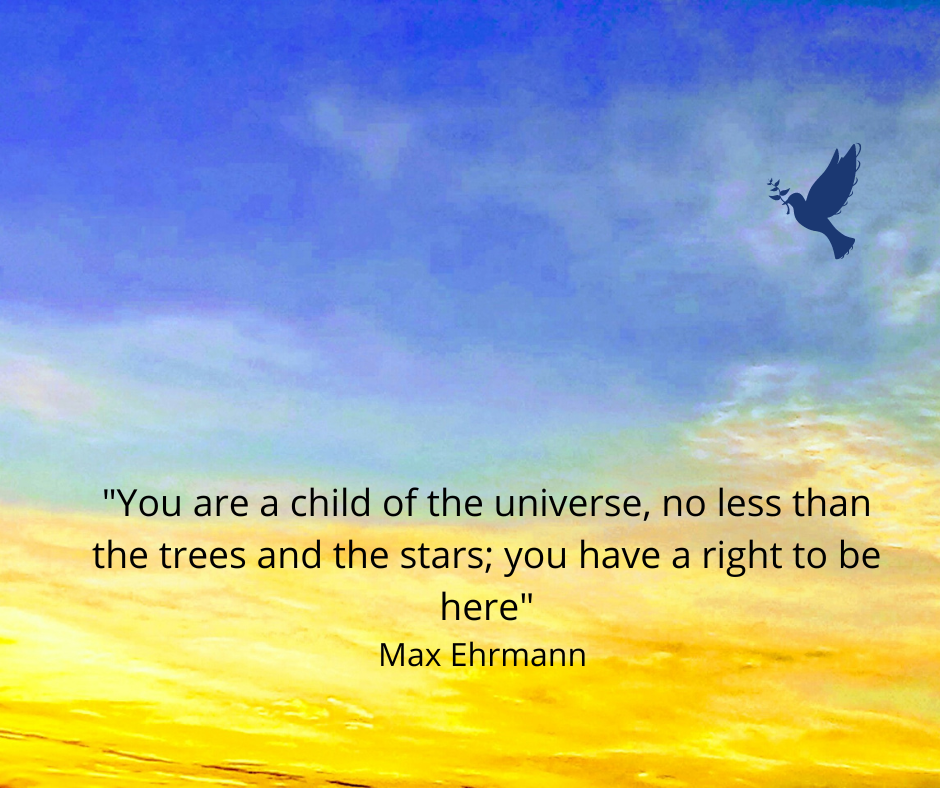MAGDA LEWANDOWSKA
„You are a child of the universe no less than the trees and the stars, you have a right to be here.” Max Ehrmann
By conducting both individual therapies and courses, I like working with the concept that everything is ok with us, that we do not have to correct anything in ourselves, or become a better version of ourselves, or strive for perfection. Since we are already in the world, that is, there is a higher power that wanted us to be here, which means that exactly who we are, we are good enough, that is exactly how we were supposed to be. Each of us has our tasks and mission here, and everything that is needed for this is given to us at the beginning – appearance, intellect, character, personality, talents, sensitivity characteristic only to us, etc.

So it’s not about becoming someone else, it’s about developing your potential – what we got at birth.
Marisa Peer (author of Rapid Transformational Therapy, the method I use in my work with my clients on a daily basis) often says that we are not born thanks to our parents, but through them. They are the vehicle that delivers us here. There is a force majeure that wants us to appear. People call this force variously – God, the Universe, Source, Nature, there are those who even call it Chance (but then they take away their own power and agency). As children, we feel connected to this higher power. When we come into the world, we just know that we are enough for who we are – smart enough, pretty, good enough, we deserve love and all the best.
When you look at small children – those who are just learning to walk, talk, eat with a spoon – when an activity does not work out for them on the first or the 20th time, they do not give up. There is no room for doubt in their minds, meaning that maybe they’re not doing something well enough, so maybe they shouldn’t be doing it after all. When children fall over, they stand up, wait for applause and try to take the next step.
So where do negative thoughts in adults come from?
The beliefs that something is wrong with us are most often acquired in the process of upbringing and education. Our families compare us with our siblings or with friends (“Why only B? After all, Zosia got an A” – sounds familiar?). A peer group in which we do not feel accepted, classmates who make fun of our clothes or glasses, a teacher who favors someone else in the class. There are plenty of such situations. They make us believe that something is wrong with us and enter adult life with such conviction.
The feeling that we are insufficient, we start to fill this deficiency with something – for some it is food (sweets, salty snacks), for others it is alcohol, for others, for example shopping. We eat, drink and buy in excess, but never this emotional lack, this feeling that we are insufficient, we will never fill with another chocolate, a glass of wine or a new bag.

This deficiency can only be filled by a return to this very childhood emotion, to the feeling that everything is fine with us, that we lack nothing.
Hypnotherapy, meditation and conscious breathing are helpful in this regard. These are simple methods of working with the mind that make it possible to free ourselves from other people’s beliefs about ourselves, from the lies that have been repeated over the years have become our truth (“you can’t do anything”, “you are stupid”, “you are not suitable” etc.). If parents or educators repeated these words to us, or put them in situations in which we, as children, interpreted them in this way, then in adult life we unconsciously repeat these words to ourselves, or we enter into relationships in which someone repeats them to us, or we attract them to ourselves situations in which we prove to ourselves that it is true about us.
It’s just that our subconscious mind likes what is familiar because it is safe for it. If a lie has been repeated many times, it becomes something familiar to the subconscious mind, so paradoxically it becomes something safe.
As adults, conscious people, we can reverse it. We can consciously return to a sense of sufficiency. Marisa Peer speaks of the healing power of repeating the words “I am enough”. Repeating them aloud, many times a day, speaking these words in front of the mirror looking into your own eyes is more powerful than the criticism we heard in childhood. If we came into the world knowing that we are good enough, our subconscious mind also remembers it. And if it remembers it, it can come back to it and recreate it in our body and mind. This feeling can become our truth again.
Close your eyes now and for the next few moments imagine your life – your relationships, your work, your everyday life – when you think about yourself, when you feel in every cell of your body that you are good enough

About the Author:
Magda Lewandowska
I am a dietitian and psychotraumatologist. I conduct trainings and workshops for women in the field of strengthening self-esteem and relations with the body and with food. In my work I use techniques such as Rapid Transformational Therapy, meditation and conscious breathing. I believe that we create our own reality. I show how to move from the victim mentality (in which we are often stuck because of the harm suffered in childhood) into the mentality of an adult, mature person who decides about his own life. More information about me and my workshops and individual processes can be found at www.magdalewandowska.pl
This article is the result of the „Wider Horizons” project, implemented by Development Support Foundation Innovator.
Project is co-financed by the European Union under Erasmus + Programme. (KA1 – Learning mobility of individuals, Mobility of adult education staff, Agreement No. 2020-1-PL01-KA104-079945).
This project has been funded with support from the European Commission. This publication reflects the views only of the author, and the Commission cannot be held responsible for any use which may be made of the information contained therein.
License CC BY-SA
BLOG Development Support Foundation Innovator is licensed under a Creative Commons Attribution-ShareAlike 4.0 License. We kindly ask you to quote the author of the entry explicitly and the source: “The text is from the blog of the Development Support Foundation Innovator and is located at [link to the relevant entry] Author of the text: [name surname]”.
The CC-BY-SA license is excluded from the logo of the Foundation, to which all rights are reserved.